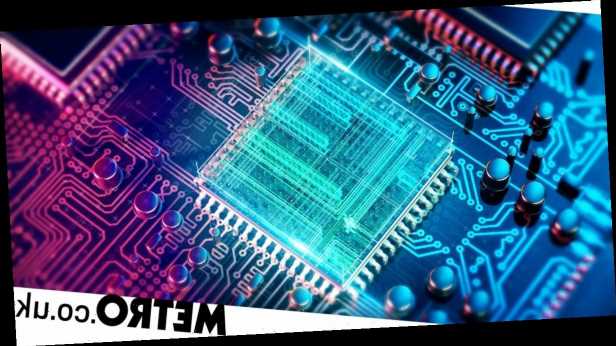The United States is working on a plan to have a secondary internet running on quantum computers that is ‘virtually unhackable.’
During a presentation last week, officials from the Department of Energy (DOE) produced a blueprint for the development of a national, quantum internet.
The idea is that information will be transferred at a quantum level, rendering it far more secure and unable to be intercepted by conventional hackers. Several quantum computers are up and running in the US, but the technology is far from ubiquitous.
Still, the US government appears to be pushing ahead with the idea.
‘The Department of Energy is proud to play an instrumental role in the development of the national quantum internet,’ said U.S. Secretary of Energy Dan Brouillette.
‘By constructing this new and emerging technology, the United States continues with its commitment to maintain and expand our quantum capabilities.’
The agency says it is working with universities and industry scientists on the project and aims to have a prototype established within a decade.
DOE scientists partnered up with the University of Chicago in February to build a 52-mile ‘quantum loop’ along which information can be passed as sub-atomic particles.
‘One of the hallmarks of quantum transmissions is that they are exceedingly difficult to eavesdrop on as information passes between locations,’ the DOE said in a statement.
‘Scientists plan to use that trait to make virtually unhackable networks.’
According to US officials, some of the early adopters could include the banking and health services sectors. Similarly, there would be applications for national security and aircraft communications.
‘Eventually, the use of quantum networking technology in mobile phones could have broad impacts on the lives of individuals around the world,’ the statement added.
David Awschalom, a professor at the University of Chicago and senior scientist at Argonne National Laboratory, commented: ‘The foundation of quantum networks rests on our ability to precisely synthesize and manipulate matter at the atomic scale, including the control of single photons,’
What is a quantum computer?
At its most basic level, a quantum computer is able to process information as more than just one of two states.
For a regular, non-quantum computer, everything boils down to ‘bits’ – or a binary option of either 1 or 0. A quantum computer, on the other hand, boils down to something called ‘qubits’. These are smaller than bits because they themselves can store two pieces of information.
Quantum relies on the quantum property of ‘superposition’. It’s best explained as a computing version of Schrodinger’s Cat.
A qubit can be both ‘on’ or ‘off’ but also any variant or position in-between. If observed, it will only be one of these states but when not being watched, it could be every possibility available to it.
In practice, this means 8 bits would have 256 combinations but only one can be used at any one time.
Eight qubits would hold all 256 combinations at once. Every time you add a qubit to a quantum computer, you double the information capacity. This process is exponential. So if you have ten qubits you can store 1,024 pieces of information.
When computing large amounts of data, this becomes pretty handy.
Let’s say, hypothetically, you wanted to use a computer to map out the chemical compound of your morning cup of coffee. There’s going to be the different molecules involved in the steamy beverage (caffeine, polyphenol, chlorogenic acids to name a few – coffee has over 1,000 aroma compounds alone) each with their own unique properties.
A regular dusty laptop would take an age to figure out all the different information and lay it out for you.
A quantum computer would do all of that in a split second and still be able to list all the different ways those molecules behave when they’re introduced different stimulants – like temperature or a dash of milk.
What’s more, it would be impossible for anyone using a regular laptop to intercept the information as it’s being processed and transmitted by the quantum computer.
So, not only is it faster but it’s also more secure. Which is why the US is so interested in developing the technology into a new kind of super internet.
Source: Read Full Article


